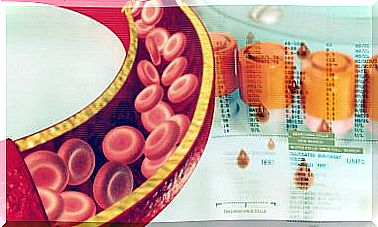Colon Cancer Life Expectancy
We cannot know exactly the life expectancy associated with a certain disease, but we can rely on statistical studies to obtain an approximation.
Colon cancer is a disease in which the cells that make up the middle and final part of the large intestine are altered. In this way, they grow uncontrollably and form polyps inside the digestive tract.
Likewise, they can spread to other nearby tissues, affecting more body regions and aggravating the disease. As a general rule, it is usually grouped with rectal cancer due to the similarity between their characteristics.
On the other hand, the most common signs of this pathology are tiredness or weakness, nausea and vomiting. Usually the patient experiences diarrhea or constipation and the stools may be reddish in color. This is because there is internal bleeding since blood is expelled during defecation.
As a general rule, the different subtypes of cancer originate from a mutation or modification in the genetic material or DNA of cells.
Thus, it can affect a large category of cells and body regions. These alterations can appear from exposure to radiation, toxic substances (such as tobacco), from a family history or spontaneously.
Diagnosis can be made through imaging. For example, in colonoscopy or sigmoidoscopy. Other medical tests such as stool analysis can also be performed to detect this pathology and rule out others.
Finally, different therapeutic techniques can be applied to combat the pathology. For example, surgical interventions, radiotherapy or ablation of polyps.
Colon cancer prognosis

On the other hand, the life expectancy or prognosis of patients with this disease depends on the characteristics of the cancer. Above all, the stage or phase of evolution that the individual presents is especially important.
Likewise, specialists usually study the overcoming of this disease by studying the survival rate of patients. They are usually done by grouping groups of people with the same type of cancer and common characteristics.
Currently, this information is expressed in survival rate at a standard number of years. In this case, it has been done at five years of life. Therefore, the following percentages express the number of people in every hundred who have exceeded have lived more than five years since the end of their treatment.
Colon Cancer Survival Rates

Likewise, according to the stage or stage of the disease , various results have been obtained:
- The five-year survival rate for stage I disease is greater than ninety-two percent.
- For stage IIA, the five-year survival rate is approximately eighty-seven percent. However, for patients with this type of cancer in stage IIB the figure drops to sixty-three percent.
- In contrast, for individuals with stage IIIA the figure is above eighty-nine percent. On the other hand, if the disease is in stage IIIB, the percentage is sixty-nine percent. Likewise, for stage IIIC the rate is around fifty-three percent.
- Finally, patients with stage IV disease have a low survival rate. In this case, the cancer has spread to other body regions, worsening or aggravating the pathology. The percentage is around eleven percent in these clinical cases.
However, these figures only show the number of patients who can exceed a standard figure of time. We cannot know exactly what the life expectancy of a patient will be. This is because we do not know what other pathologies it may develop or how it will respond to the assigned treatment.
Nowadays, numerous studies are being carried out regarding the eradication of cancer. New treatments or therapies are also being developed to calm the patient and spread the disorder as soon as possible.
In addition, the importance of early diagnosis and family inheritance in this type of disease is highlighted since it directly affects aggressiveness in the clinical course. For this reason, if colon cancer is suspected, it is recommended to see your medical team.









